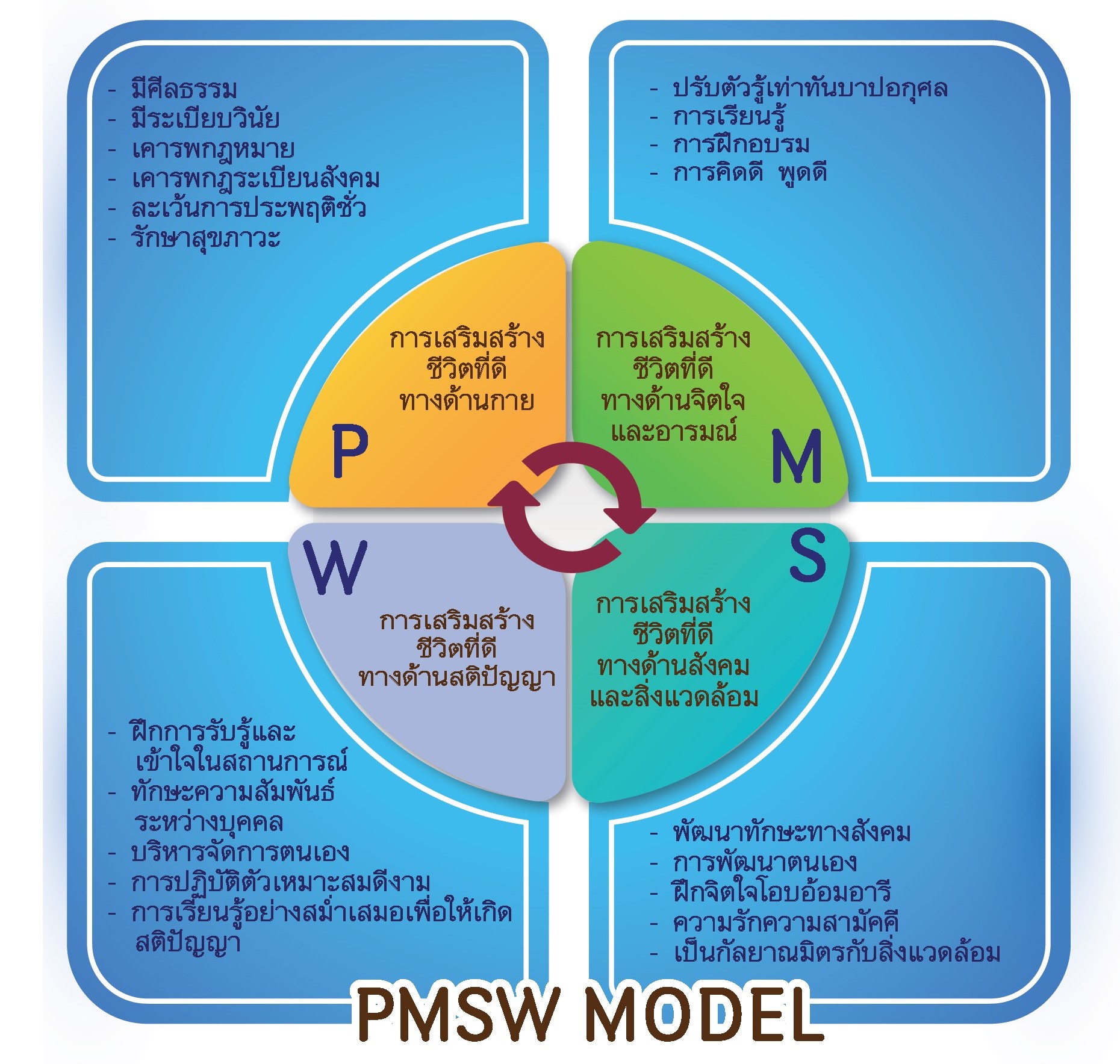Approaches to Enhancing the Quality of a Good Life Based on Cūḷakamavibhaṅga Sutta
Main Article Content
Abstract
The purposes of this research were 1) study the principle of karma in Cūḷakamavibhaṅgasutta and 2) explore approaches to enhancing a good life based on Cūḷakamavibhaṅgasutta. This qualitative study collected data from documents and purposive in-depth interviews with 17 individuals/monks from three groups involved in enhancing a good life, including Buddhist scholars, Buddhist ecclesiastical official monks (administrative monks), and organizational executives. The collected data were analyzed using content and descriptive analysis techniques.
The research findings revealed that:
1. Cūḷakamavibhaṅgasutta involves karma and its results. It is a discourse in which the Buddha explains the root causes of karma that lead to differences in human births. It describes the nature of karma and the role of the recipient of kamma. In Cūḷakamavibhaṅgasutta, karma refers to "the process of constructing or enhancing life according to karma," which is a matter of distinguishing kamma based on human actions or behaviors performed with intention through body, speech, and mind.
2. Approaches to enhancing a good life based on Cūḷakamavibhaṅgasutta consist of four principles of living including the following conclusions: 1) Enhancing a good physical life by establishing oneself as a moral person, possessing basic moral conscience, and refraining from various forms of misconduct and corruption. This involves using the five precepts as a foundation. 2) Enhancing a good mental and emotional life by sustaining life on a virtuous path while engaging the senses with various objects. 3) Enhancing a good social and environmental life by developing skills for coexisting in society and the environment. This includes training oneself to have generosity and being a good friend to the environment. 4) Enhancing a good intellectual life by practicing appropriate perception and understanding of situations and people around oneself.
Article Details

This work is licensed under a Creative Commons Attribution-NonCommercial-NoDerivatives 4.0 International License.
เพื่อให้เป็นไปตามกฎหมายลิขสิทธิ์ ผู้นิพนธ์ทุกท่านต้องลงลายมือชื่อในแบบฟอร์มใบมอบลิขสิทธิ์บทความ ให้แก่วารสารฯ พร้อมกับบทความต้นฉบับที่ได้แก้ไขครั้งสุดท้าย นอกจากนี้ ผู้นิพนธ์ทุกท่านต้องยืนยันว่าบทความ ต้นฉบับที่ส่งมาตีพิมพ์นั้น ได้ส่งมาตีพิมพ์เฉพาะในวารสาร วิชาการธรรม ทรรศน์ เพียงแห่งเดียวเท่านั้น หากมีการใช้ ภาพหรือตารางของผู้นิพนธ์อื่นที่ปรากฏในสิ่งตีพิมพ์อื่นมาแล้ว ผู้นิพนธ์ต้องขออนุญาตเจ้าของลิขสิทธิ์ก่อน พร้อมทั้ง แสดงหนังสือที่ได้รับการยินยอมต่อบรรณาธิการ ก่อนที่บทความจะได้รับการตีพิมพ์References
ฐิตินันท์ กาญจนวิโรจน์. (2553). การพัฒนาคุณภาพชีวิตตามหลักอริยมรรค. (วิทยานิพนธ์ศาสนศาสตรดุษฎีบัณฑิต). นครปฐม: มหาวิทยาลัยมหามกุฏราชวิทยาลัย.
บัวบุษรา อัครสรุติพงศ์. (2560). บูรณาการความเชื่อเรื่องกรรมและผลของกรรมในพุทธปรัชญาเถรวาทด้วยมหากัมมวิภังคสูตร. วารสารพุทธมัคค์, 2(1), 43-52.
ปถมพร ตะละภัฏ และดุษฎี สุวรรณขจร. (2560). ศึกษาวิเคราะห์การคิดเชิงบวกในการพัฒนาชีวิตตามหลักพระพุทธศาสนา. วารสารบัณฑิตศึกษาปริทรรศน์ม, 13(3), 280-291.
พระครูปทุมภาวนาจารย์ และเสริมศิริ อัครพุฒิพันธ์. (2562). หลักภาวนา 4 กับการพัฒนาปรีชาเชิงอารมณ์ของวัยรุ่นไทยในสังคมยุคดิจิทัล. วารสารพุทธจิตวิทยา, 4(1), 129-142.
พระมนตรี กิจฺจสโร (วิโรจะ) และคณะ. (2561). การปรับใช้หลักไตรสิกขาเพื่อการพัฒนาคุณภาพชีวิตของนักเรียน โรงเรียนศรีวิไลวิทยา อำเภอศรีวิไล จังหวัดบึงกาฬ. เข้าถึงได้จาก https://www.firstojs.com/index.php/JTPR/article/view/204/123
มหาวิทยาลัยมหามกุฏราชวิทยาลัย. (2525). พระไตรปิฎกภาษาไทย ฉบับสยามรัฐ เล่มที่ 14, 20. นครปฐม: มหามกุฏราชวิทยาลัย.
วศิน อินทสระ. (2555). หลักกรรมและการเวียนว่ายตายเกิด. สมุทรปราการ: ขุมทองอุตสาหกรรมและการพิมพ์.
ศิริพร บุญชัยเสถียร. (2558). การฝึกจิตเพื่อควบคุมและพัฒนาตนตามหลักพระพุทธศาสนา. วารสารสถาบันวิจัยญาณสังวร, 6(2), 11-20.
สกล เหลืองไพฑูรย์ และสุเชาวน์ พลอยชุม. (2561). การเสริมสร้างความคิดเชิงบวกตามแนวพุทธธรรม. วารสารมหาจุฬาวิชาการ, 6(ฉบับพิเศษ), 113-123.
สมเด็จพระพุทธโฆษาจารย์ (ป.อ.ปยุตฺโต). (2559). พจนานุกรมพุทธศาสน์ ฉบับประมวลศัพท์. (พิมพ์ครั้งที่ 27). กรุงเทพฯ: พระพุทธศาสนาของธรรมสภา.
สาริกา หาญพานิชย์. (2558). การศึกษาวิเคราะห์รูปแบบการพัฒนาคุณภาพชีวิตเชิงพุทธบูรณาการ. วารสารมนุษยศาสตร์และสังคมศาสตร์, 32(3), 25-48.

